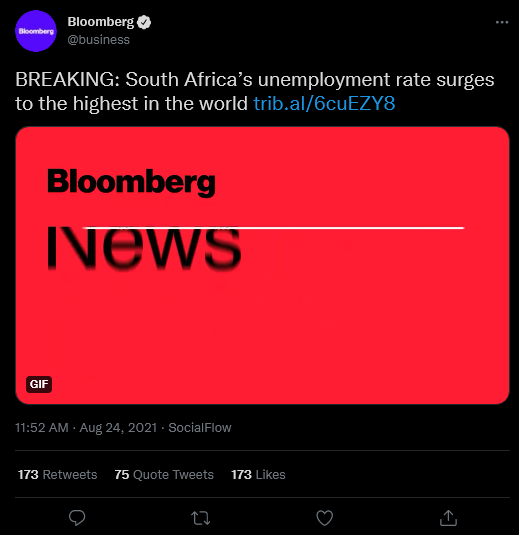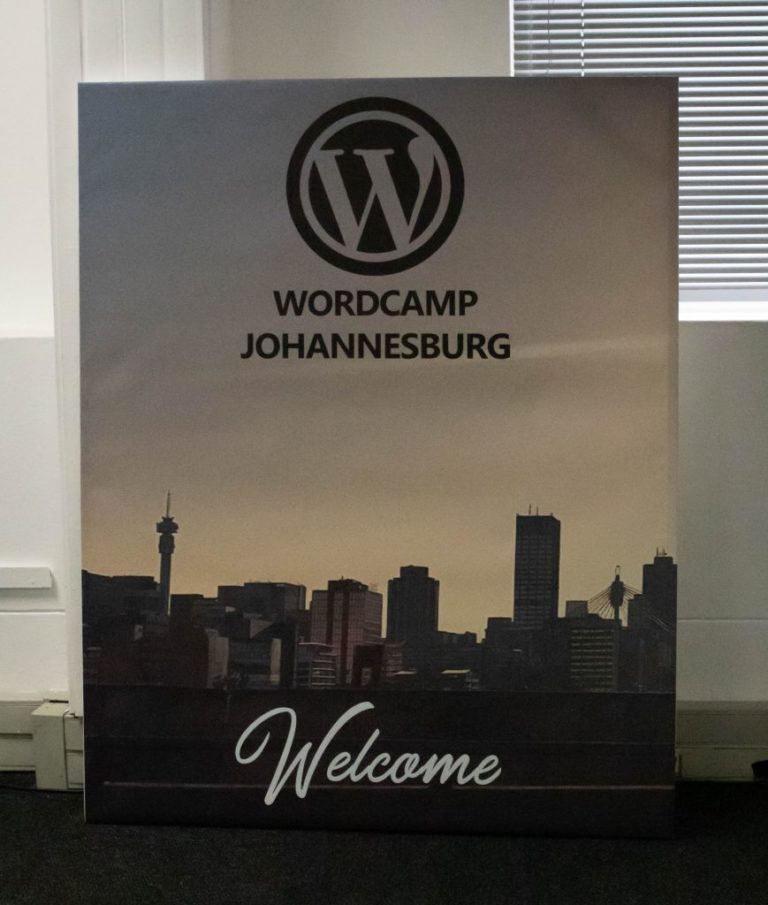Two incomplete and complicit strands of thought characterise South African responses to the publication of a cartoon depicting the Prophet Muhammad (PBUH) in the Mail & Guardian. The first strand of thought rooted in the Muslim community explains the offence caused by the cartoon through explaining that Islam has a problem with the depiction of animate objects, and more especially the Prophet Muhammad (PBUH). This strands argues that the M&G has demonstrated insensitivity, disrespected the religion and has offended Muslims. Obviously, more progressive writers seek to explore the important and complex relationship between freedom of religion, on the one hand, and freedom of expression on the other.
The second strand argues, to quote the Mail & Guardian editor, that the cartoon provided a “gentle and irreverent poke”. In other words no offence was intended and represents a good example of the free expression that catalyzes debate and asks us to speak about the uncomfortable. In “pushing the limits we extend the freedoms” would be an apt summary of the central argument.
Despite the wide chasm that divides these two strands of thought, they share an unintended complicity. This complicity is locating the debate within the Constitution without adequate reference to contextual questions on the meanings of the “Draw Mohammad Day” group on Facebook, the political import of the decision and the wider meaning for a deeper and longer struggle for hegemony, which is loosely referred to as “clash of civilisation”. In doing so, the ethical and political choice of publication of the cartoon is not brought to the fore.
Social media and political mobilisation
Social media will become an increasingly prominent means of political mobilisation and (potentially) democratises activism and makes hate spread more quickly. Facebook for instance has shut down racist pages and it seems that they have deemed the “Draw Mohammad Day” site to be offensive to its terms and conditions. Alternatively, it might just be that the counter-mobilisation proved more overwhelming — in other words the social media battle provides space for that most traditional of political virtue/vice: power. Social media in other words both reflects attitudes in society but also shapes them.
Let’s start at the beginning. Some terrorist group threatened the creators of South Park which depicted the Prophet Muhammad in one of the episodes. In response, a cartoonist, Molly Norris, produced a poster. After this a Facebook group sprung up with a call to submit cartoons of the Prophet on a specific day. Norris has distanced herself from the group and apologised to Muslims. Her reasoning suggests that her initial goals were being turned into something else. The creator of the Facebook group distanced himself from the group saying that: “I am aghast that so many people are posting deeply offensive pictures of the prophet.”
Facebook has since removed the original “Draw Mohammad Day” page so I have had to piece together the intent of the page from the cached version and range of reports. As I have not had the opportunity to read the comments on the site, l will assume that the creators had a benign but misguided intention (ie giving them the benefit of doubt). The intention seems to be protection of free expression. However, the logic in practice equates all Muslims with terrorists. The logic created by the crowd on this group seems to be as follows:
- Terrorists have threatened our freedom.
- The terrorists are Muslims.
- So let’s cause offence to all Muslims.
- By implication all Muslims are terrorists.
With such a provocative stance, the publicity for the page would obviously become viral. The establishment of a counter-page (called “Against Draw Mohammed Day”) spread the message and offered a social media outlet for protest. If numbers tell a story, the respective pages had close to 100 000 fans.
Clash of civilisations
A tell-tale sign on the “Draw Mohammad Day” page was the use of the infamous Danish cartoons. In so doing it provided the most visible link to a wider political phenomenon called “clash of civilisations” ostensibly drawn from the writings of Samuel Huntington. The common-place reading is that Huntington argued that culture and religion will be the major sources of conflict in the post-Cold War era. A closer reading reveals that Huntington is also arguing that democratic reforms should be attuned to cultural and religious context and thus not merely mimic Western transitions to democracy. In popular parlance, however, the “clash of civilisation” refers to a fundamental difference between Western and other cultures and religion, especially Islam. The “Draw Mohammad Day” is a product of this overarching description for two related reasons.
First, through seeking not to challenge terrorists but rather Muslims it strengthens and deepens the divide between these clashing civilisations through the following (possibly unrelated) arguments:
- Through challenging the Muslim community the freedoms for Muslim communities are expanded, which leaves Muslims without agency.
- The threats to freedom of expression are significant and justify pushing beyond limits established in our society. The end justifies the means in this instance.
- All Muslims are terrorists, so let us get them.
Second, the “Draw Mohammed Day” page closes the space for engagement rather than inviting dialogue. The choice of protest — depicting the Prophet — is highly offensive to the majority of Muslims and the method seeks confrontation not understanding. In establishing its method of protest, it sought to offend.
Hegemonic construction
Political activism — especially in the social media space — understands the need to build hegemony, especially through getting unlikely voices to support a particular stance. This is done to achieve what Antonio Gramsci has called “common sense”. This requires achieving a double movement in this case:
- Recasting the debate in terms of rights. The typical neo-conservative cannot sustain arguments based on a widening of freedom, however the South Park fan can certainly do this, much more authentically. However, the South Park fan takes on board the key assumptions of a neo-conservative agenda and widens it.
- Widening the appeal. Obviously, institutions like the press jealousy guard freedom of speech. The M&G, for instance has a proud tradition in doing just that. However, through recasting the debate in terms of rights, it widens the appeal. Rather than tackle the original equating of Muslims with terrorists, the debate is suddenly about freedom of speech.
(Obviously, even the creators of a group or page cannot direct the crowd, hence the earlier quotes from the founder of the page.)
The conclusion is that an arguably progressive publication publishes a cartoon by an obviously progressive cartoonist as an expression of free speech. The devastating irony is that it props up and expands the stereotyping of Muslims as dangerous, violent and destructive.
Consequently, I would contend that the creation and publication of the cartoon, rather than entrenching freedom of speech, supports the creation of a common sense that divides the world into mad Muslims on the one hand and the sensible others on the other.
The publication of the cartoon also reinforces the most destructive elements in the Muslim community who will start their own mobilisation with the refrain “we told you so”. In turn, it supports sections of the Muslim community calling for disengagement from democratic politics, as well as calls for “Jihad” against the publisher and cartoonists. (All the official Muslim bodies have called for restraint and engagement.)
The impact is that a polarised debate with power vested in the extremes of each “civilisation” holding sway and attempting to widen their influence. In so doing, a profoundly disturbing consensus emerges that reinforces the view that the civilisations are indeed clashing. I have no clue as to what the Constitutional Court would make of this cartoon but would argue that the decision marks the widening and normalising of the idea that the “civilisations are clashing”. In this sense, the decision to publish the cartoon runs counter to entrenching and widening of democratic freedoms and the spirit of the Constitution.
* PBUH = Peace be upon him
With a nod to Edward Said and Mahmood Mamdani
This article first appeared on the Thought Leader group blog hosted by the Mail and Guardian.

